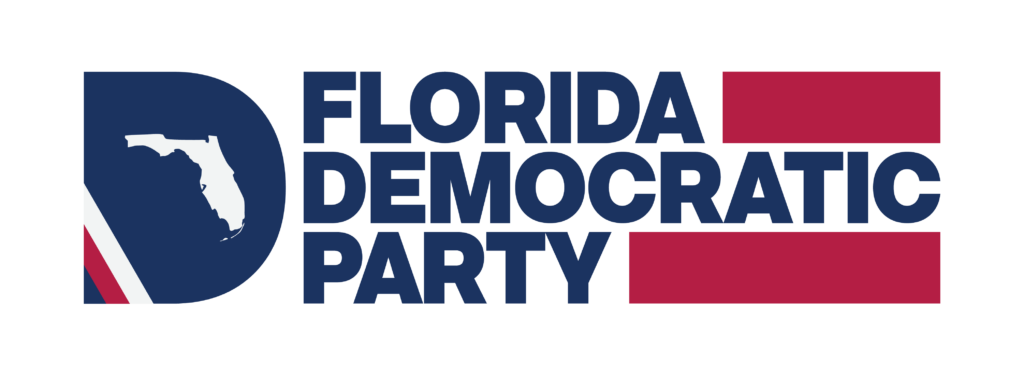In the News
"Action is Lacking" From Scott on Opioid Epidemic


“Action is Lacking” From Rick Scott on Opioid Epidemic
Today another one of Rick Scott’s friends, Attorney General Jeff Sessions, comes to town, this time to talk about the opioid epidemic, while Scott’s handling of the Office of Drug Control, and lack of action to combat the epidemic in Florida continues to be questioned. Even his own Attorney General Pam Bondi said that Scott’s efforts would result to “nothing.” Scott and the Trump administration continue to push the same failed policies that have been detrimental to Florida’s efforts to fight the drug and opioid epidemic.
“This visit from Scott’s allies in the Trump administration is shining a spotlight on Scott’s own self-serving politics that have held Florida back from addressing the drug and opioid scourge facing our state.” said FDP Spokeswoman Caroline Rowland. “Thanks to Scott, Florida has no agency to address this epidemic, he has slashed budgets for drug treatment and mental health services, tried to make it harder for law enforcement to crack down on criminals pushing illegal pills, and even rejected millions in federal dollars that could help save lives.”
Florida Times Union, 2/4/2018, Battling the opioid death wave
“ACTION IS LACKING
Florida has a plan to fight the opioid crisis but no dedicated agency to lead and coordinate it.
The Drug Policy Advisory Council, described as a “hodgepodge of state government appointees” by the Herald/Times Tallahassee Bureau, recommended bringing back the Office of Drug Control. It was established by former Gov. Jeb Bush in 1999 to coordinate the state’s drug control efforts but Gov. Rick Scott scrapped it in 2011 at the height of the pill mill crisis.
The office’s $500,000 budget was less than 1/10th of 1 percent of the state’s budget.
Scott ought to be taking the approach he uses with hurricanes — hands-on and forceful. Based on saving lives alone, the overdose epidemic is much worse than hurricanes but the deaths don’t come in sensational events but quietly, often privately.
The state of Florida has been slow to respond, in large part because the Legislature, especially the Florida House has refused to expand Medicaid. This is a prime funding source of substance abuse treatment.
Medicaid expansion is almost entirely funded by the federal government. Instead, Florida is having to find other sources of funding.
Scott has proposed $53 million. Bondi, who led the fight against pill mills, called this “a great start” but admitted in Politico Florida that “in a $80 billion budget, that’s nothing.””
Tampa Bay Times, 2/6/2018, Editorial: Treatment, not prison, needed to fight opioid crisis
“Gov. Rick Scott, in his proposed budget, is seeking $53 million to fight the epidemic — $27 million of which would come from federal grants. The money would fund drug treatment, law enforcement efforts and help local fire departments acquire the overdose-reversal drug Narcan. It’s a decent start, but it’s not enough from a governor who made substance abuse treatment a low priority for too long.”
Tampa Bay Times, 2/6/2018, The chances of resurrecting Florida’s Office of Drug Control this year appear slim
- “Reviving the office, which Gov. Rick Scott killed in 2011, was a state panel’s top recommendation to fight the opioid crisis.”
- “The office was created by Gov. Jeb Bush in 1999 to coordinate the state’s drug fight. Back then, the pill mill crisis was just beginning.”
- “But when Scott took office in 2011, at the height of the pill mills and at the beginning of the heroin epidemic, he eliminated the four-person office.”
- “Scott has not supported bringing it back, even after the Statewide Drug Policy Advisory Council, made up of people from nine state agencies and another seven people appointed by Scott, made it one of their top recommendations in their report last year.”
Capitol News Service: Under Scott Florida Cut Mental Health And Addiction Services By Over $11 Million in 2017. [WCTV, 7/11/17]
Pensacola News Journal: Scott “Took Major Step Backward In Effort To Fight Substance Abuse” By Closing Office Of Drug Control. “Gov.-elect Rick Scott took a major step backward in the effort to fight substance abuse in Florida by closing the Office of Drug Control. His ill-advised decision sends a message that drug abuse is no longer a problem or a priority in this state. But nothing could be further from the truth when it comes to drugs and alcohol, and the massive costs and problems associated with abusing them. The harsh reality is that substance abuse exacts a costly toll in terms of prosecution and imprisonment. The costs of drug and alcohol abuse to the state have risen to a staggering $46 billion. There also are many broken homes and ruined lives.” [Editorial, Pensacola News Journal, 12/28/10]
Scott “Stunned Law Enforcement” When He Proposed Eliminating Prescription Drug Monitoring Program, Claimed It Was Not “Something The State Ought To Be Doing.” “Scott earlier this month had stunned law enforcement, legislators and Floridians who have lost relatives to pain pill abuse when he proposed eliminating the ‘prescription drug monitoring program,’ or PDMP. ‘I don’t think it’s the state’s responsibility,’ Scott said at a press briefing on Feb. 14. “I don’t think it’s something the state ought to be doing.” [Sun Sentinel, 2/26/11]
Miami Herald Editorial Board: Scott’s Efforts On Opioid Crisis Were “Not Enough,” “Too Small.” “State officials are on the case. Gov. Rick Scott extended his declaration of a public health emergency to distribute $27 million in federal money for various treatment and prevention programs, including $17.8 million for medication-assisted treatment and related counseling. A three-year minimum sentence for people caught with 4 grams of fentanyl or carfentanyl approved by the Legislature this spring and signed into law by Scott should be another deterrent to dealers. The $10.5 million in state money allocated by Tallahassee to reduce opioid dependency will help as well. But it’s not enough. The scale of this effort remains too small.” [Editorial, Miami Herald, 7/10/17]


